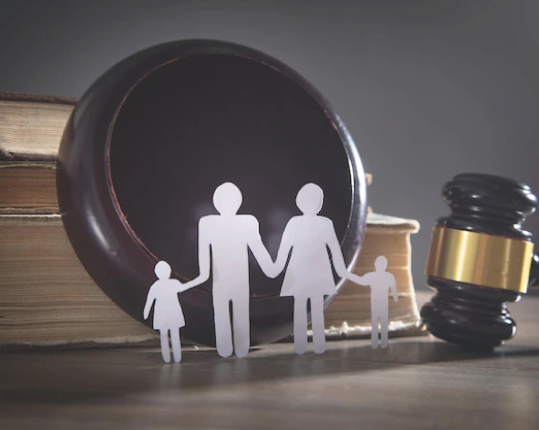Grandparent relationships and reconciliation wisdom

The bond between grandparents and grandchildren is unique, built on love, patience, and the passing down of valuable lessons. Beyond family warmth, grandparents often serve as living bridges between generations, offering not only stories from the past but also deep insights into healing and forgiveness. Through decades of life experience, they develop a sense of reconciliation wisdom a perspective that helps families resolve conflicts and strengthen relationships. This wisdom allows them to model patience, compassion, and understanding, giving younger generations tools to navigate challenges with grace and unity.
Role of Grandparents in Family Harmony
Grandparents are often seen as mediators, bringing calm to situations that might otherwise lead to division. Their life journeys, often filled with challenges, equip them with the ability to see beyond immediate disagreements. In teaching reconciliation wisdom, they show how forgiveness restores peace and how unity strengthens family bonds. Whether through conversations, stories, or quiet presence, they inspire grandchildren to approach conflict with kindness. By embodying understanding and perspective, grandparents help families heal, reminding everyone that relationships are more important than disagreements or pride.
Extending Wisdom Beyond the Family
The lessons of grandparents reach beyond household boundaries, inspiring communities to value unity and compassion. Many families choose to honor this by supporting initiatives that reflect generosity and education. For example, families may choose to donate to help kids go back to school in Georgia, creating opportunities for children while practicing values of reconciliation and care. Such acts show how wisdom learned in personal relationships can extend outward, creating ripples of positive change. By following the examples of grandparents, communities thrive on kindness, generosity, and reconciliation.
Forgiveness as a Cornerstone of Reconciliation
At the heart of reconciliation wisdom lies the practice of forgiveness. Grandparents often share stories of past struggles whether within families or communities where forgiveness brought healing. These stories remind younger generations that grudges only deepen wounds, while forgiveness opens doors to renewed trust. Through patience and compassion, grandparents demonstrate that letting go of resentment restores peace. Their example helps families and children embrace forgiveness not as weakness, but as strength. This ability to forgive ensures that reconciliation remains a living principle, guiding relationships toward long-lasting harmony and healing.
Teaching Through Gentle Storytelling
Grandparents often pass down lessons through gentle storytelling, using real-life experiences wrapped in compassion. These stories are not harsh accounts of conflict but softened narratives that highlight growth, resilience, and peace. Through such stories, they transmit reconciliation wisdom to younger listeners in a way that resonates deeply. Children learn that even when mistakes are made, healing is possible through forgiveness and empathy. Storytelling also fosters emotional understanding, helping families bond over shared values of love and kindness. This method makes reconciliation accessible to even the youngest members of the family.
Modeling Patience in Relationships
Patience is one of the most powerful lessons grandparents teach. When conflicts arise, they often remind families that rushing toward judgment or anger only worsens situations. Their lived experiences provide countless examples of how patience has mended relationships. By practicing and modeling patience, grandparents demonstrate reconciliation wisdom in daily life. Grandchildren observing this learn to pause before reacting, to consider others’ perspectives, and to value peace over victory. These lessons shape them into compassionate adults who know how to nurture rather than damage relationships, keeping families strong for generations.
Encouraging Dialogue Across Generations
Another crucial aspect of reconciliation wisdom is fostering dialogue. Grandparents encourage open conversations, even when subjects are uncomfortable. They create safe spaces where family members can express feelings without fear of rejection. Through dialogue, they guide younger generations toward understanding that listening is as important as speaking. These practices strengthen family bonds and ensure conflicts are addressed rather than buried. By encouraging honest discussions, grandparents instill the value of transparency and communication, ensuring reconciliation is not just about forgiveness but also about building mutual respect and deeper connections.
Healing Through Compassionate Acts
Sometimes, reconciliation is not about words but actions. Grandparents often emphasize the importance of small gestures sharing meals, offering help, or simply being present as powerful tools for healing. Such acts embody reconciliation wisdom by showing that love expressed through kindness can dissolve barriers. When grandchildren witness these gestures, they learn that reconciliation is built not only on forgiveness but also on active compassion. These compassionate acts remind families that love is demonstrated through what we do daily, ensuring that peace is lived, not just spoken.
Reconciling Generational Differences
In every family, differences between generations can create tension. Grandparents, however, often serve as bridges, helping younger members understand that every era carries unique challenges. By practicing reconciliation wisdom, they encourage respect for both old traditions and new ideas. Their guidance helps families embrace differences as strengths rather than weaknesses. When grandchildren learn to value multiple perspectives, they grow into open-minded adults capable of building harmony in diverse settings. In this way, grandparents use their experience to reconcile not just conflicts but also generational gaps, fostering unity.
Spiritual Dimensions of Reconciliation
For many grandparents, reconciliation is not only emotional but also spiritual. They often teach that peace in relationships reflects inner peace, grounded in faith or personal values. Their reconciliation wisdom emphasizes forgiveness, prayer, or reflection as ways to restore harmony. This spiritual approach often strengthens families by giving deeper meaning to reconciliation. Children who inherit these teachings grow to value not just the practice of peace but also the inner transformation it requires. This blend of spirituality and relationship-building ensures reconciliation remains holistic and long-lasting.
Strengthening Families Through Shared Values
Families that embrace reconciliation wisdom often thrive because their relationships are rooted in shared values of kindness, respect, and forgiveness. Grandparents play a key role in reinforcing these values by modeling them consistently. Whether through daily habits, traditions, or guidance during conflicts, they show that reconciliation is not a one-time act but a continuous way of life. Families united under these principles grow stronger and more resilient, facing life’s challenges with collective courage. The wisdom passed down ensures that peace and unity remain family priorities across generations.
Reconciliation as a Gift for the Future
When grandparents pass on reconciliation wisdom, they give more than lessons for today they provide a roadmap for the future. Grandchildren who grow up with these teachings carry them into friendships, workplaces, and communities. This ensures reconciliation values extend beyond the family, positively impacting society. By showing the importance of forgiveness and dialogue, grandparents equip young people to build healthier, more compassionate relationships throughout life. In this way, the wisdom of reconciliation becomes a timeless gift, continually shaping future generations toward peace and unity.
Conclusion
Grandparent relationships are far more than cherished bonds of love; they are living lessons in patience, compassion, and forgiveness. Through decades of experience, grandparents share reconciliation wisdom that helps families heal and thrive. By teaching forgiveness, modeling patience, and encouraging dialogue, they ensure that reconciliation remains a guiding principle across generations. These lessons extend beyond families into communities, fostering kindness and peace on a larger scale. In honoring this wisdom, families not only preserve harmony but also prepare younger generations to live with greater empathy, unity, and love.

